Changing Opinions (Part 1)
Hi Everyone,
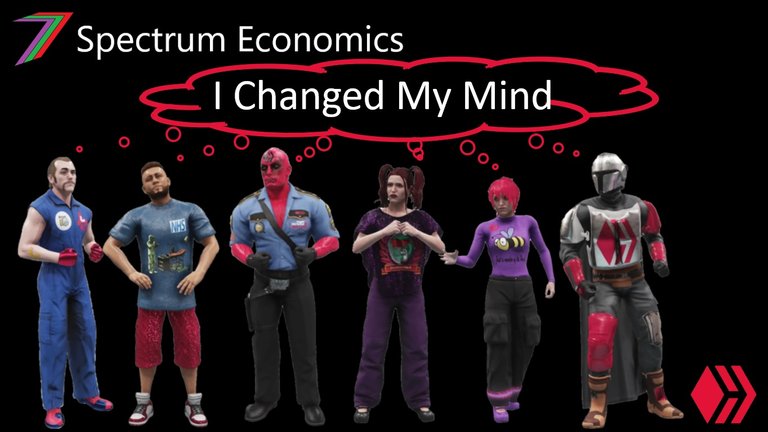
I am writing a two-part series about how and why we change or do not change our opinions. In Part One, I focus on how our opinions form and why they might change. I refer to the causes of change as ‘influences’. I also discuss the importance of perception and the relationship between perceptions, influences, and opinions. I have discussed perceptions and influence in several other posts. These posts are focused around decision-making. See below.
In Part Two, I will discuss part of my personal journey and how different influences have affected my opinions and perceptions. I discuss some of the opinions I formerly held and some of the reasons behind them as well how and why I changed my opinions.
Part One
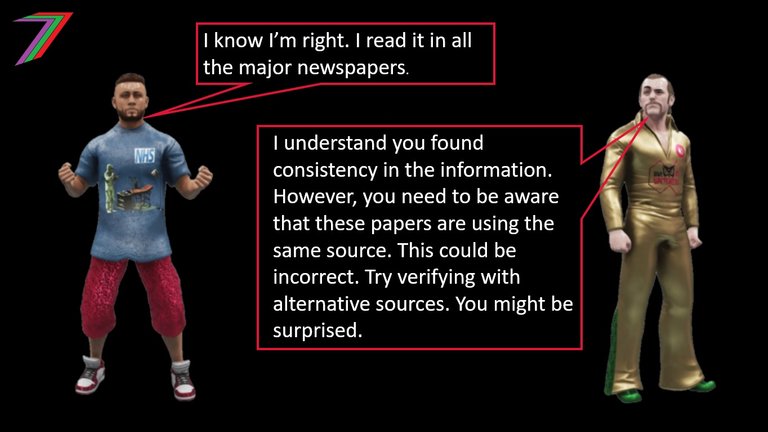
Over time, as we encounter different influences, our opinions are almost inevitably going to change. We have new experiences. We encounter new information. We meet different people. We encounter new cultures and belief systems. All of these have the potential to influence us. Some mildly and some strongly. Some positively and some negatively.
Our opinions and views can become enlightened or more warped. It can be a struggle to determine which direction we are heading in. It is important to always be open to the idea that we could be moving in the wrong direction. It is also important to not drop our existing opinions too quickly. They have some basis as we are willing to hold them. New influences can feel stronger as they are in our current environment. Whereas, past influences may become less compelling as our exposure to them has been reduced. Therefore, it is important to regularly reflect on why we hold a particular opinion. We need to remember and understand the key influences that enabled us to form these opinions. We then need to explore and evaluate how new influences conflict or complement previous or existing influences. We may conclude that our opinions should remain the same, need refining, or should be completely changed.
Experiences (What happens to you)
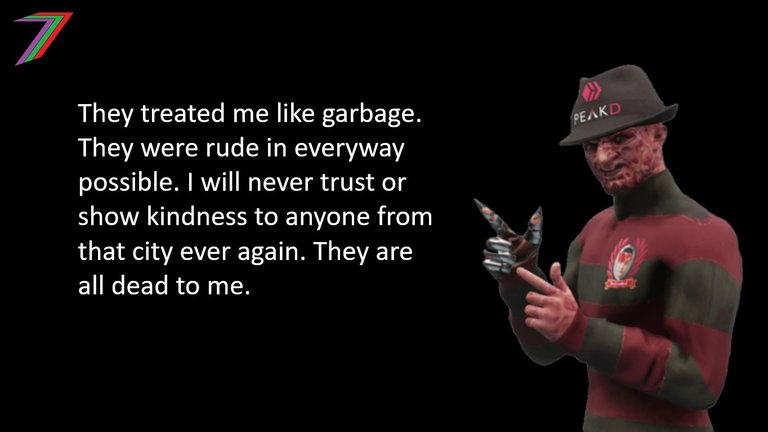
Our experiences our important. They enable us to learn as my move through life. We desire to repeat the positive experiences and avoid the negative ones. Many of us develop strategies to maximise the positive while minimising the negative. Sometimes it can be simple, like wearing gloves when handling hot objects. Other times, it can be more complicated and involve a trade-off; For example, wearing protective gear while cycling. The protective gear might reduce some of the enjoyment of cycling but it also reduces the chances of injury if the cyclist were to crash. Sometimes the strategies can be counterproductive. This is often the case with success and failure. People like success and dislike failure. Therefore, they may choose to avoid competition to increase their chances of success. However, strong competition enables a person to improve and eventually become more successful. Therefore to achieve long-run success, it is often necessary to endure short-run failure.
Our experiences inform us about other people. If someone is consistently nice to us, we may draw the conclusion that he or she is a nice person. We might draw the opposite conclusion if he or she is consistently unpleasant to us. We may extend this to different groups of people. If we encounter several rude people from a particular country, we may conclude that all people from that country are rude. The same arguments could be made about people of a particular ethnicity, religion, culture, age group and sex. The same arguments could be made about other traits such as intelligence, wealth, skillsets and abilities, opinions, and personality. These experiences are often based on a sample of people we encounter. They may not represent everyone belonging to that group. If the sample is large, it may only be representative of the group in general but not every person in that group. If we meet more people from that group that do not have the traits we assumed they would have, our overall experience changes and we may change our opinion about the group in general; this is assuming that our past experiences do not blind us from our present experience.
Information (Observed recordings of events and opinions of others)
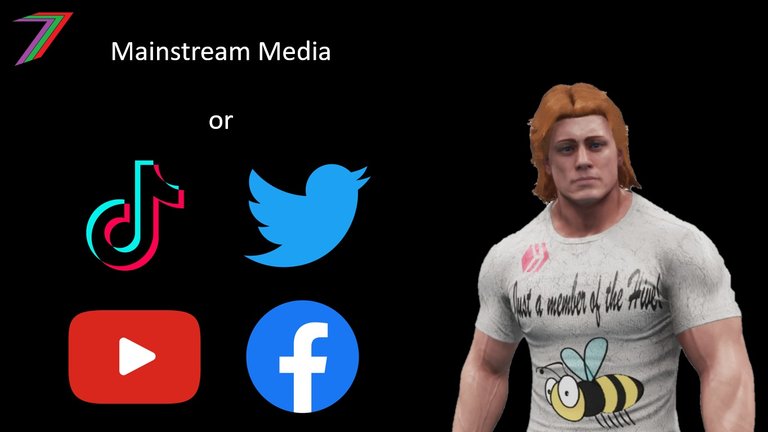
Our opinions are shaped by the information we receive. Information can be accurate or inaccurate. We need to determine the difference. This can be approached in many different ways. These include researching and verifying information, relying on trusted sources, and relying on information that aligns with our opinions. If research and verification is done diligently, we should be able to confidently determine what information is accurate. However, this is often not possible. We cannot always gain access to all relevant sources or find alternative information that strongly supports or disproves the information we have already encountered. Even it is possible to verify information, it can be very time consuming. Most people do not have sufficient time to verify every piece of information they encounter. Therefore, they rely on sources that they trust. People could trust sources for many different reasons. This trust could be based on evidence of consistent accuracy or just faith in the source. Some people may only believe information that reinforces their belief system. They may not be interested in whether this information can be substantiated or the source of the information.
Information can influence our opinions if we believe that information is sufficiently compelling to compete with the existing influences on our opinions. Presentation of information is often a key determinant. Information can be presented in written form, audio, pictures, photographs, diagrams, and video. Different media affects different people in different ways. For example, the same information presented in a video may have greater influence than if it was presented in words and photographs.
People (Direct social interaction)
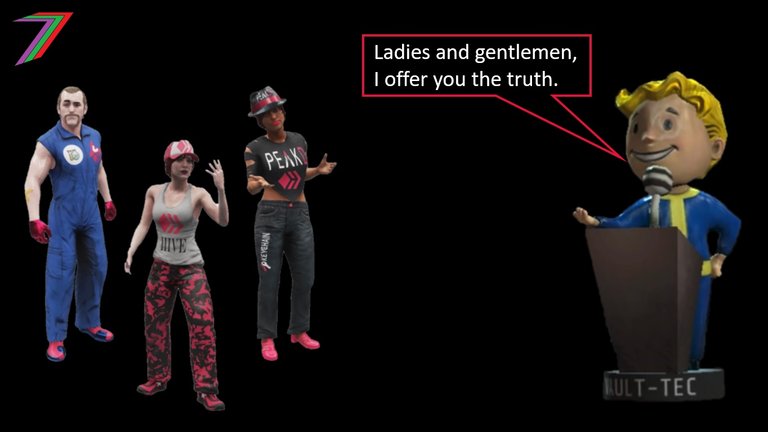
People often have the most powerful influence on our opinions. Physical presence can make a difference. It can be reassuring, compelling, pressurising, intimidating, or threatening. A person’s presence can affect our emotions and thus have an impact on our opinions. The people most likely to influence our opinions are people we have regular contact with and who we know reasonably well. For example, they could be family, friends, work colleagues, or community leaders. We may hold them with affection or respect. Therefore, we could be more willing to change our opinions if they are in conflict with these people. The more people that our opinions clash with, the greater the pressure to change our opinions.
It is also possible we have a stronger reluctance to change if we perceive people to be ganging up on us. Therefore, holding onto particular opinions becomes an act of defiance. Our personalities play a significant role in determining how we are influenced and to the extent we are influenced by other people. Regardless of our personality, if the reasons for changing or holding onto an opinion is not founded in logic, the opinion becomes detrimental to us.
Cultures and Belief Systems (Observing or participating in a way of life)
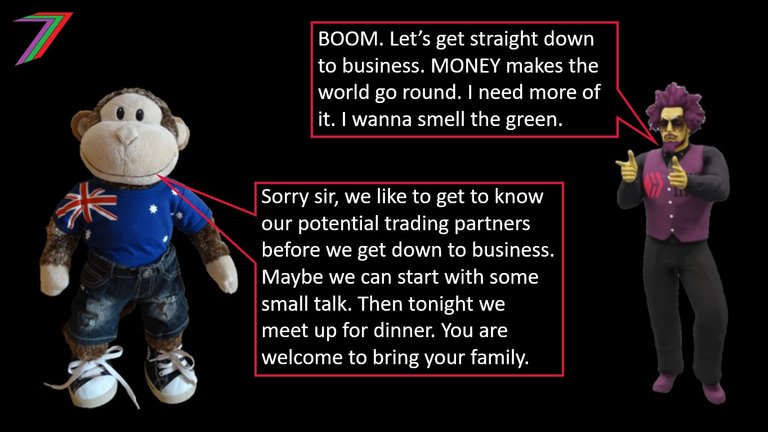
All people are linked to some form of belief system. This could be a strong formal relationship such as being part of a strict religion or it could be a casual set of beliefs we do not even consider as part of a belief system but has the power to guide our decisions. Some people may strictly remain with their own belief systems while others will explore other belief systems. Exploring other belief systems exposes us to a wider range of influences. If we are open to what these belief systems offer, this could lead to greater flexibility in our opinions.
The belief system we are born into plays a role in determining how we approach other belief systems. A dogmatic belief system pressures us to reject other belief systems. They may be used to teach young people that other belief systems are inferior, incorrect, or even immoral. As these people become older, they are likely to push the same dogmatic belief system on the next generation of young people. Hence, generations of people become locked into the same way of thinking. Therefore, will hold very similar opinions and will be reluctant to ever depart from them.
Perception (How we experience everything)

Our perceptions are key to determining our opinions. Everything we experience is based on our perceptions. It is how we interpret everything around us. Different people have different perceptions of the exact same experience. One person might find the experience enjoyable, the other person might find it unpleasant. People perceive the actions of others differently. What could be considered rude by one person could be considered honest and helpful by another. People perceive the words of other people differently because they could be focused on different parts of a conversation, the body language accompanying the words, or the tone of voice and emphasis on particular words. Even different colours are perceived differently. Some people might associate ‘red’ as a pleasant bright colour and others might associate it with suffering. Perception affects everything.
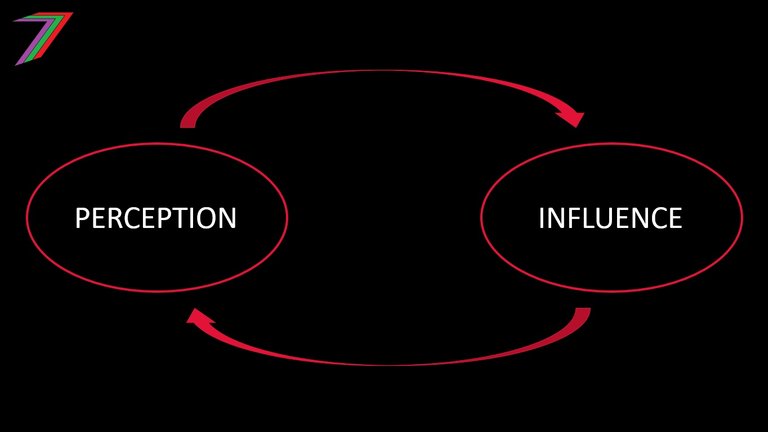
Our perception affects how and what influences us. However, what influences us affects how we perceive things. Perception and influence forms a cycle. It is unclear where this cycle begins. It could be from birth or from our earliest exposure. I would argue that the strength of our perceptions and influences are more important. A very strong influence could permanently dominate a person’s perceptions. Every influence that person encounters is subject to perceptions formed in him or her as a result of the very strong influence. For example, people who belong in a cult become may have their life dictated to them. If they are removed from the cult, the influence of the cult can remain strong because their perception of the world has been determined by the cult. All other influences could be rejected because they are perceived as undesirable or dishonest.
Most people do not belong to a cult but most people have encountered a strong influence that has shaped their perceptions. It is important to understand how this influence has shaped our perceptions and how we respond to other influences. As this affects more than just our opinions but how our opinions are shaped by new influences. Merely understanding how something has influenced us, weakens the strength of that influence. We would have established that a mechanism of control over us exists. This could help enable us to respond more openly to new influences.
Do we choose our own opinions?
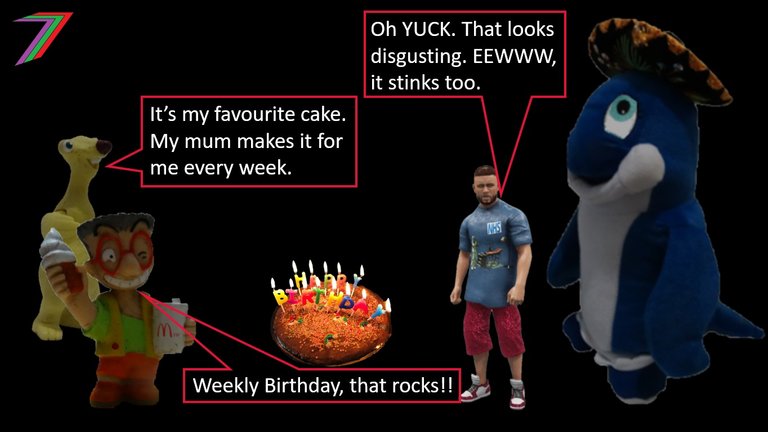
No matter what influences we encounter we are limited by our capability to perceive them. We rely on our 5 or 6 senses (i.e. sight, hearing, smell, taste, and touch). We can verify the consistency of some of these senses such as through reading words or identifying objects but we cannot verify if other people perceive these the same way as we do. We might identify something based on how we initially recognised it. Therefore, we are making reference to memories. We do not know how everyone else interprets the same information. We know there are some differences because different sounds, flavours, smells, and textures give different sensations. A sound could be greatly pleasurable to some people and an awful din to others. People enjoy different foods because of their different perceptions of taste, smell, and even touch. Therefore, we cannot say there is a universal truth. We can only interpret the world based on what we can perceive.
Our emotions and moods affect our perceptions. We can perceive something differently depending on how we feel. For example, we might perceive a joke to be funny when we are in a good mood and insulting when we are in a bad mood. Emotions and moods might only temporality affect our perceptions but that temporary change could alter our opinions more permanently if we do not challenge them when we are in a more normal state of mind.
We all face different influences. Our perceptions are influenced by past and present influences, our sense and our emotions (albeit temporarily). These factors strongly determine our opinions. Arguably, we do not have direct control over them. However, I would argue we are able to position ourselves so that our opinions are more likely to change. This can be done by exposing ourselves to different influences. We can meet people from different backgrounds. We can explore different cultures. We can travel to different places. Even if our opinions do not change, we can develop empathy to other people’s circumstances and their opinions. If our opinions change, they could change in ways we do not expect. If we are able to seek positive influences our opinions are more likely to change for the better.
Conclusion
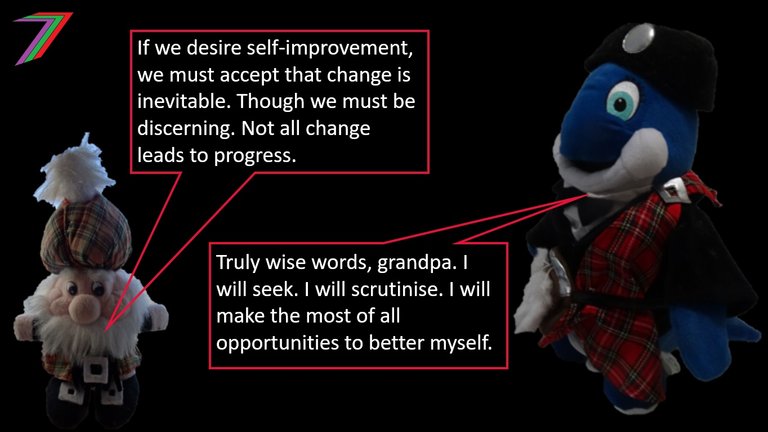
Understanding why we hold a particular opinion is important to understanding why we might change our opinion in the future. Our perception of the reasons for holding an opinion need to weaken or become less relevant or accurate for us to decide to change our opinion. This can occur naturally overtime or because we encounter new influences that can sway us in a different direction. We could be swayed by logic or emotion. Not every change in opinion is good. New influences could warp our perceptions and thus our opinions. Some people are skilled at presenting compelling arguments about almost anything; thus able to deceive people into changing their opinions. They are often most effective when people are in a more emotional state. Therefore, it is important to pause our thought process so that we can interrogate how and what we are being influenced by as well as to compare how this aligns with what we believed before we encountered this new influence.
It is important that our opinions change overtime. Whatever we believe at any point is based on an incomplete picture. Therefore, we need to add to the picture by enabling ourselves to be exposed to new and different influences. Some of these influences will be helpful and can be used to tweak or even redirect our opinions as well as improve our perceptions. Some of these influences can potentially be harmful if they negatively alter our opinions and warp our perceptions. If we going to open our minds to the world, encountering such influences is inevitable. We need to be able to distinguish between the positive and negative. Encountering a negative influences also has value if we can learn how we and others can be deceived by it.
More posts

If you want to read any of my other posts, you can click on the links below. These links will lead you to posts containing my collection of works. These 'Collection of Works' posts have been updated to contain links to the Hive versions of my posts.
Hive: Future of Social Media
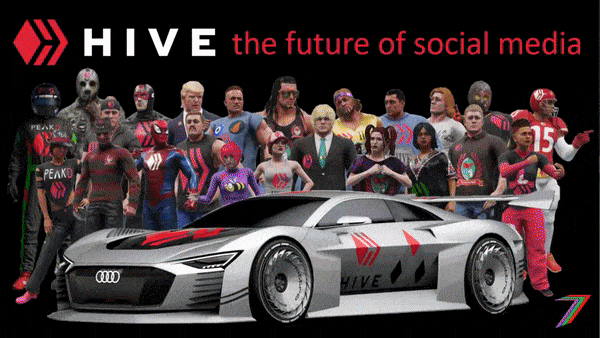
Spectrumecons on the Hive blockchain





You have provided quite a long list of factors that have something to do about forming our opinions. I think our belief system is one of the strongest factor that creates and sustain the opinions.
About Perceptions I think they are themselves influenced by opinions. I mean if I have an opinion about something, I would perceive abut it accrdingly
The relationships between opinions, influences, and perceptions is quite circular. What we believe, shapes what we see. What see, shapes what we believe. We could become trapped only seeing only what we want to see because our perceptions have become too badly warped.
Complex and influencing each other
This post has been manually curated by @steemflow from Indiaunited community. Join us on our Discord Server.
Do you know that you can earn a passive income by delegating to @indiaunited. We share 100 % of the curation rewards with the delegators.
Here are some handy links for delegations: 100HP, 250HP, 500HP, 1000HP.
Read our latest announcement post to get more information.
Please contribute to the community by upvoting this comment and posts made by @indiaunited.
As humans we learn every day to be better than our past and this however showcases positive ideology by correcting the mistake we've done before because we intend to be better and the previous mistakes serves as a step forward to maximize the positive aim.
It is great if we are able to learn from our mistakes. We need to acknowledge we have made mistakes. We need to understand why we made mistakes. We need to understand what to do to prevent making the same or similar mistake again. There is a quite a process to it. Many people get stuck on step one.
I have always said that it's one cannot complete detail how they are going to react to situations unless they experience it. Therefore you are right our opinions about certain things are likely to change with new experiences.
We don't know for sure until it actually happens to us. It works for both good and bad experiences.
That's completely true. It's he who wears the shoes that knows where it pinches
Dear @spectrumecons,
Your support for the current HiveBuzz proposal (#199) is much appreciated but the proposal will expire soon!
May we ask you to review and support the new proposal so our team can continue its work?
You can support the new proposal (#248) on Peakd, Ecency, Hive.blog or using HiveSigner.
Thank you!
Dear @spectrumecons,
Your support for the current HiveBuzz proposal (#199) is much appreciated but the proposal will expire soon!
May we ask you to review and support the new proposal so our team can continue its work?
You can support the new proposal (#248) on Peakd, Ecency, Hive.blog or using HiveSigner.
Thank you!
Okay...
This was so informative @spectrumecons . It made me to go through my own set of beliefs and opinions...
Its seems I have a wide range of opinions...
But now I'm thinking.. is it really good? Cause most people my age already has a fixed set of rules which they abide by...
Or does it even matter on how fixed or flexible our opinions are?
Surely there would always be a clash with another person..
Another reason why I don't really like philosophy 😂😂💔
@agmoore what do you think?
Thank you for calling me from the shadows, @seki1 😄
We all like to think we make up our own minds. We all like to think we are relatively free of influence. But that is not an honest assessment. The best we can hope for is to foster a skeptical perspective. To try, as @spectrumecons suggests, to tap different resources. But most of our resources are funneled through the same channels. And when information is not funneled through those channels we have to wonder where it comes from. What is the agenda of that source?
It's not easy, and takes a lot of work. My position frankly is that I probably don't know half of what is going on in the world. I live in a bubble very deliberately constructed around me by others, by parties that want to persuade. The Internet is not much help. Who knows what's true there.
Still, we can't give up. We have to struggle to find the truth and then do our best to make a decision. Once we've done that, as @spectrumecons suggests again, we have to be ready to change our minds.
You got a really long answer to your question, @seki1. Ask a former social studies teacher such a question and get ready to be bored. 😆
😂😂😂
I knew that such a post would interest you @agmoore 😂😂😂
It's not that long though..
Thanks for your reply😂😂
I think believing we know more than we actually do is a trap many of us fall into at some point. Realising how little we really know is a great turning point to bringing us closer to the truth. It provides us with motivation to explore beyond our usual sphere of influence.
I think it is healthy to have both rigid and flexible opinions. In some areas we will have consistently strong evidence to suggest our opinions correct. Over a long enough time frame, if nothing significant changes, these opinions will and probably should become rigid. In other cases we will have opinions that are not supported by much evidence but just feel correct based on what we believe we know as well as our current environment. These opinions should be flexible to change and we should be more willing to seek more information.
Hello @spectrumecons, Great discussion. @seki1 tagged me so my comment is under his, if you are interested in reading a more detailed reaction to your post.
(This is the kind of discussion I might try to have with one of my children and they are likely to nod off as I'm talking )
Thanks @agmoore, good comment. Maybe your children will appreciate the discussion more when they are older.
😄 They are older. I think sometimes I go on too much. That's what's great about Hive. If I write something and go a bit long, nobody has to read it.